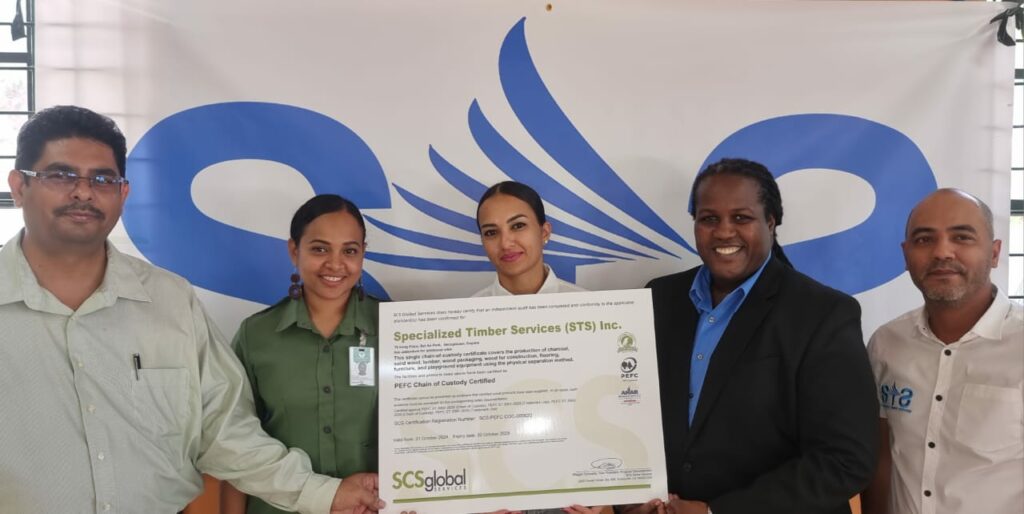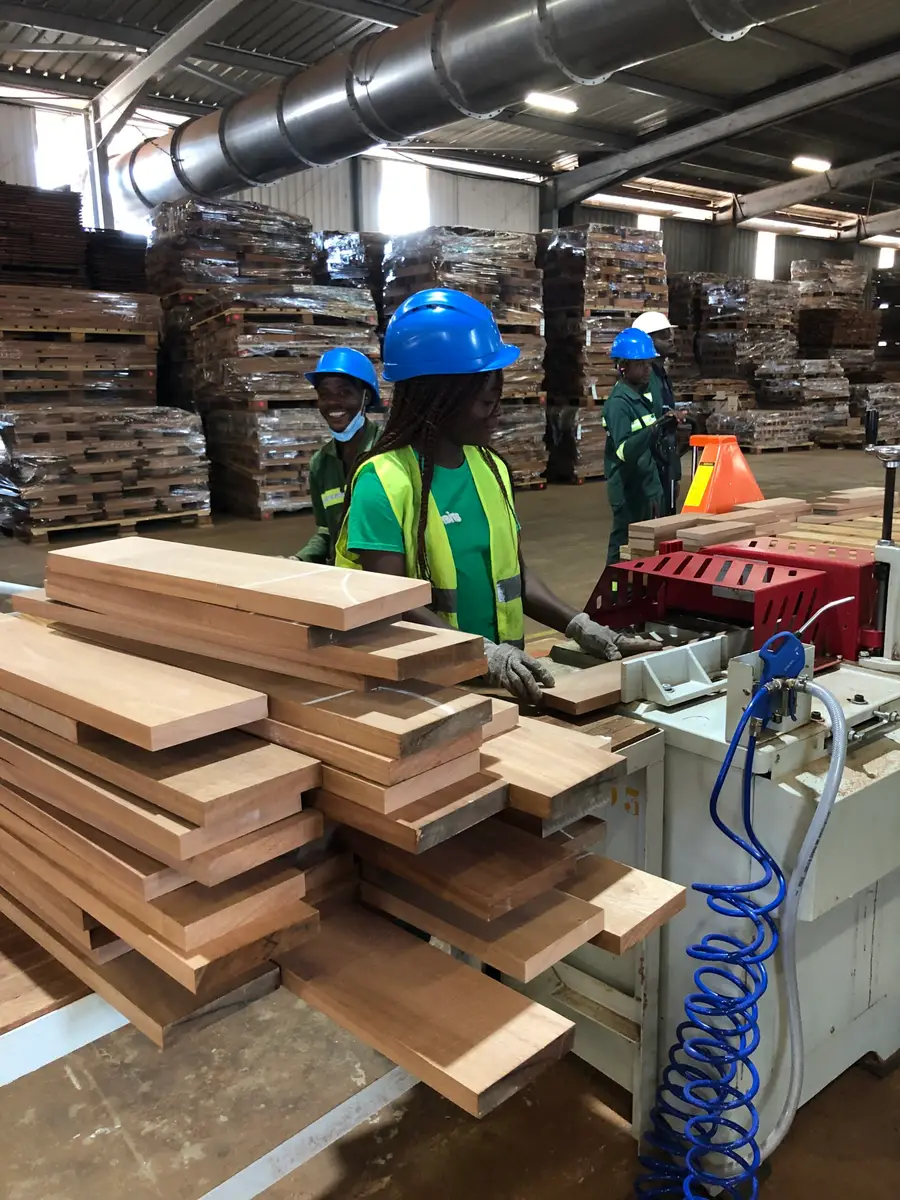Gilmour & Aitken supplier STS is first in Guyana to receive PEFC Chain of Custody Certification. Rated A in UK Timber Procurement Policy for Sustainability!
STS are proud to be the first business to receive the PEFC certification in Guyana.
This award makes them the first business in Guyana to be both FSC and PEFC CoC certified which is a fantastic achievement and a testament to their hard work and commitment.
Guyana has one of the lowest deforestation levels in the world. Its forest management system is enshrined in law, making it mandatory for all forest concession workers, whatever the size of business.
The team at the Guyana Forestry Commission have worked tirelessly over the last 3 years to achieve this globally recongised endorsement of their national forest certification system, involving consultation with all key stakeholders. See the press release. https://pefc.org/news/guyana-achieves-pefc-endorsement.
PEFC International endorsing the Guyanese National Forest Certification System gives gravitas to the sustainability of the Guyanese forest management. It is aligned with the vision of the country’s Low Carbon Development Strategy 2030 and other initiatives such as, the Guyana-European Union FLEGT Agreement. Importantly it ensures all companies from small indigenous operators to large commercial concessions operate the same methods of sustainable practice as it is part of the national forest code of practice which is enshrined in law.
The endorsement process involved a huge stakeholder engagement including a huge number of members from the private sector of all sizes, Government agencies and civil society entities including indigenous and environmental Non-Governmental Organisations (NGOs).
In addition to the formal public consultations required by the PEFC guidelines, the GFC conducted extensive community outreaches throughout the country during the development phase of the Standards. These stakeholder outreaches were conducted based on the FLEGT National Communication Strategy to ensure disadvantaged and affected stakeholders were appropriately reached.
The GFC conducted national community-level meetings and radio broadcast programs to ensure the relevant stakeholders were aware of the GNFCS process in Guyana, and were directed to GFC’s website to access softcopies of the Standard documents. Stakeholders outside Guyana’s national capital, Georgetown, were informed that they were able to obtain both hard and electronic copies of the GNFCS documents at any of the 33 GFC’s Forest Stations, located throughout the country.
The GFC has also taken several opportunities at various national forums, including national learning events held during 2022 and 2023, which involved participants from other countries such as, Gabon, Indonesia, Suriname, Trinidad and Tobago, Ghana etc., and at expos and conferences, including celebrations of International Days of Forests in 2022 and 2023, to promote awareness of the GNFCS process in Guyana.
Sustainably managed tropical forestry helps protect both biodiversity, the forest, stores carbon, and creates employment in fragile rural areas.
A thorough and well implemented consultation and education pathway was completed and approved by PEFC International. A great result for Guyana!


 L-R: Edward Goberdhan (Comissioner of Guyana Forestry Comission), Basmatee Mohabeer (Guyana Forestry Commission), Julianne Sarabo (STS), Joslyn McKenzie (permanent secretary for the Ministry of Natural Resources), Andrew Young (STS)
L-R: Edward Goberdhan (Comissioner of Guyana Forestry Comission), Basmatee Mohabeer (Guyana Forestry Commission), Julianne Sarabo (STS), Joslyn McKenzie (permanent secretary for the Ministry of Natural Resources), Andrew Young (STS) 